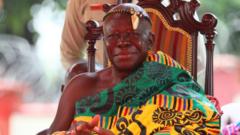SWITZERLAND / AFRICA – The African Development Bank Group and the World Health Organisation (WHO) have agreed to strengthen their partnership and scale up the transformation of Africa’s primary healthcare.
During a meeting on Sunday on the sidelines of the Islamic Development Bank’s annual meetings in Riyadh, the bank group’s president Dr Akinwumi Adesina and the director-general of WHO Dr Tedros Adhanom Ghebreyesus, said investing in the continent’s primary healthcare infrastructure could solve 85 percent of Africa’s healthcare problems.
The drive for transforming the continent’s healthcare infrastructure was motivated by the hard lessons that Africa learned from the COVID-19 pandemic when the continent was caught unprepared and struggled to gain access to medicines and vaccines even as some developed countries hoarded their surplus.
The bank then launched a $10 billion Covid-19 Response Facility to support its regional members through the pandemic. The bank’s board of directors approved a $3 billion investment for quality healthcare infrastructure and a further $3 billion to build Africa’s pharmaceutical industry to meet the needs of the continent for essential medicines and vaccines. This led to the creation of the African Pharmaceutical Technology Foundation, which is based in Kigali. Dr Ghebreyesus is a member of the Foundation’s Eminent Advisory Council.
The pandemic may be over, but Dr Adesina warned, “we must be prepared for the next pandemic and go beyond dealing with emergencies. That means, investing in our primary healthcare infrastructure,” and outlined five key areas that need to be addressed to build a sustainable ecosystem for Africa’s health industry:
Connect all healthcare centres to water and electricity. Only half of primary healthcare facilities in sub-Saharan Africa have access to clean water and adequate sanitation and only a third have access to reliable electricity.
Digitalise management and sharing of records across the health sector.
Standardise the quality of primary healthcare in terms of facilities and services. Health facilities are unevenly distributed, with major gaps in rural areas.
Change the current business model which is dominated by governments with limited resources and lack the ability to scale up quality service. There is need to attract private sector investment and ensure sustainable delivery of primary healthcare.
With improved and accessible quality healthcare service at primary level, people will feel incentivised to pay for health insurance.
The WHO director-general agreed with Dr Adesina, and pointed out that to date, majority of donor funding goes into provision of healthcare services but very little goes into developing the infrastructure.
Dr Ghebreyesus reiterated the need for investment to improve health sector financing and policies especially at primary level because “if you have strong surveillance at primary healthcare level, it can detect and prevent cases early. It can prevent outbreaks and epidemics. Preparedness and response rely heavily on primary healthcare.”
The World Health Organisation is using solar power in some health centers in several African countries but “water remains a big problem.”
Dr Adesina and Dr Ghebreyesus agreed to ensure their teams work together to scale up work that is already going on across the five issues raised during their discussion and scale up efforts to deliver quality primary healthcare in Africa.
The post African Development Bank – World Health Organisation to transform Africa’s primary healthcare appeared first on Caribbean News Global.
